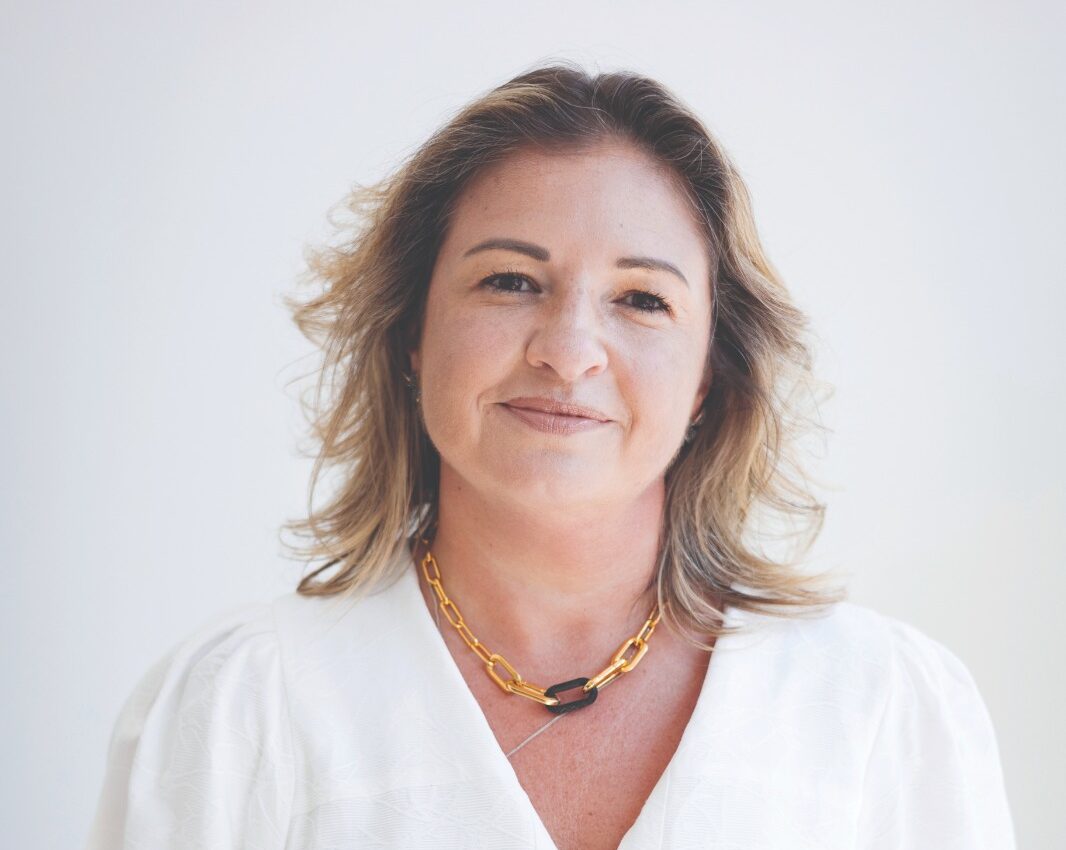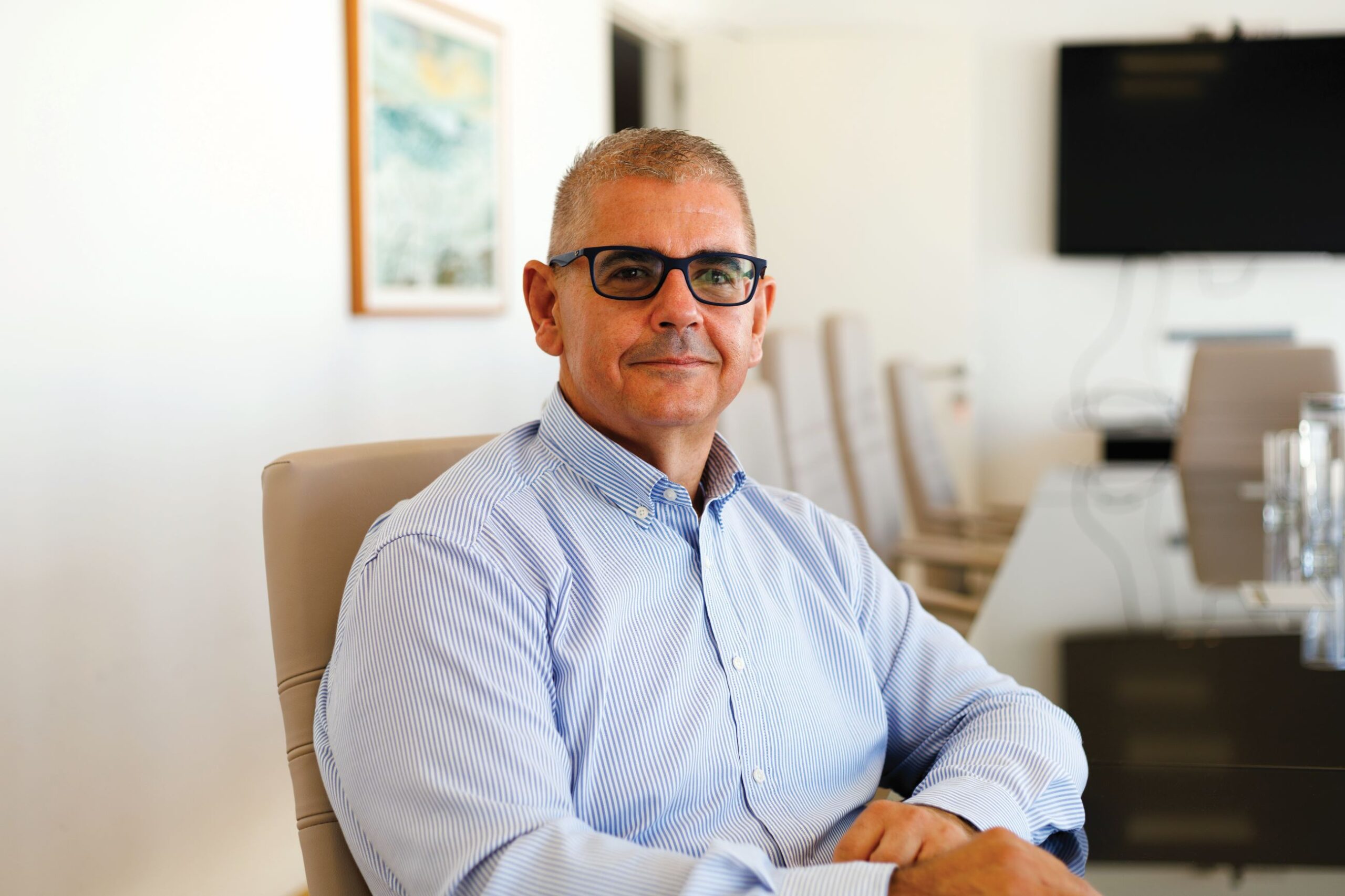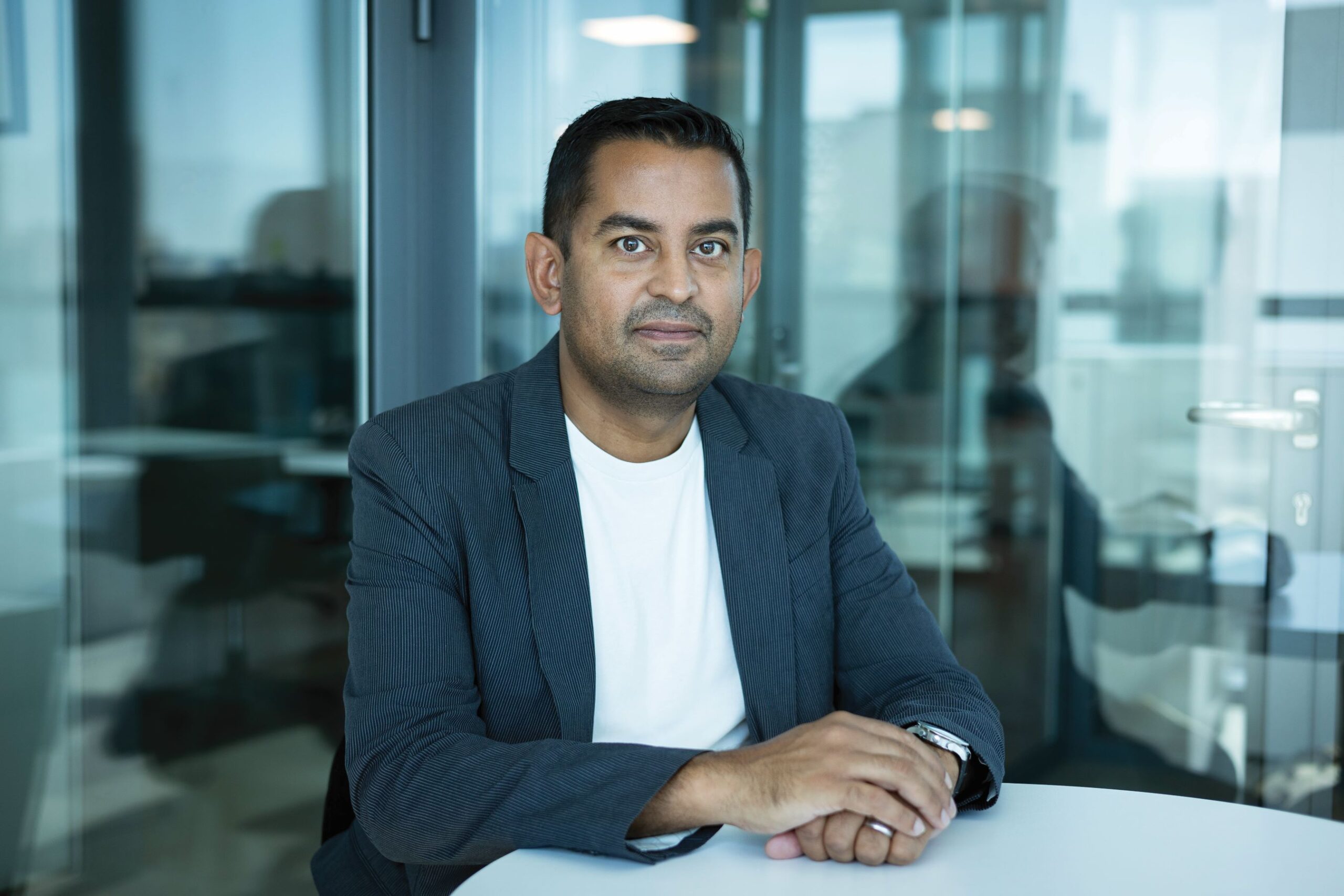Offering a strong proposition of client-centric, bespoke education, and corporate training for local companies to upskill their employees, BELS Language Schools are internationally accredited. Owner and CEO Rebecca Bonnici discusses her leadership style, and how “it takes a village” to make her business successful and sustainable.
The BELS story begins in Gozo 1995, when Rebecca Bonnici’s father transformed a traditional Gozitan farmhouse in the tranquil countryside of Kercem, into a language school. Despite initial challenges with planning, permits, and promoting an unknown location to the English Language Teaching (ELT) industry, the school welcomed its first students in 1997.
The school’s deep connection with the local community and commitment to offering an authentic Gozitan experience won over initial sceptics, eventually winning the Gozo Tourism and Investment Award in January 2024.
The school attracts mature adult learners who appreciate its warm, family-like atmosphere, state-of-the-art educational facilities, bucolic views of the stunning surroundings, and full immersion into the Gozitan lifestyle, supported by dedicated local staff and host families.

Before assuming the company’s leadership at the age of 25, Rebecca had been gaining experience teaching in one of the larger English language chains on the mainland whilst pursuing a degree in English and Communications at the University of Malta. Between lectures, she hopped over to Gozo to help with bookings, managing host families, processing payments, and venturing into sales and marketing.
On the advice of her parents, given the dearth of Director of Studies graduates on Gozo, she also achieved a Level 7 qualification in ELT, making her the only language school owner on the Maltese Islands who also possesses a DELTA qualification (a higher English language teaching qualification for experienced teachers). This allows Rebecca to fully engage with the pedagogical aspects of the business. “When I sit in a room with my staff, and we talk about learner outcomes and lesson objectives, I am actually plugged into what they are saying,” she enthuses.
Realising that there was only so much volume that could be directed to Gozo, the CEO decided to expand operations and open another school in St Paul’s Bay, away from the glut of ELT centres in St Julian’s and Sliema, yet appealing to those seeking a vibrant, youthful environment near the sea. As a young mother, Rebecca wanted to prioritise safety and security for parents, so, together with her team, she devised a seasonal programme for teenagers, with round-the-clock supervision by staff in partner accommodation.
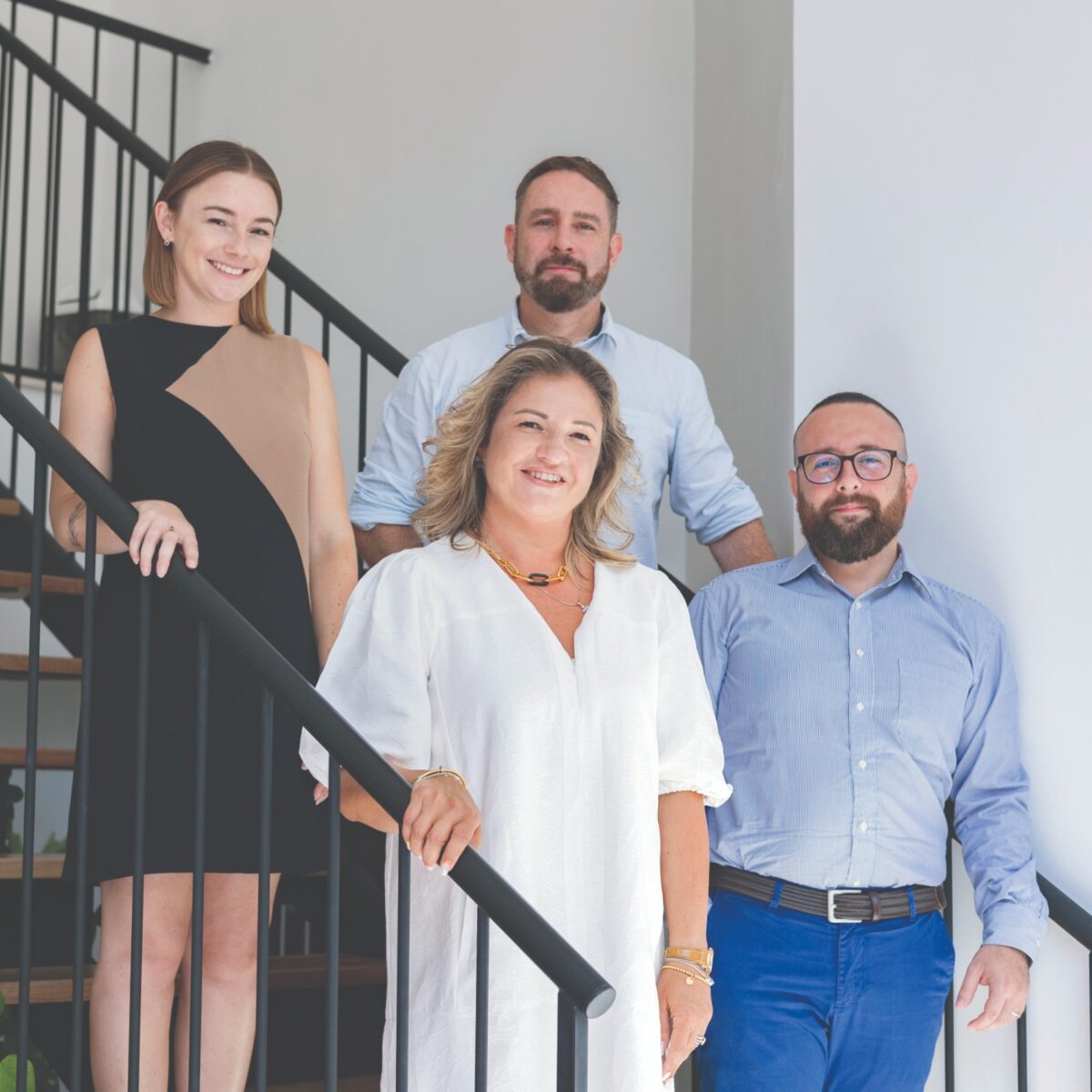
“Both schools exist in beautiful synchronicity and homogeneity,” she beams, “catering for two distinctly different clients” and providing a unique portfolio for agents when compared to the competition in Malta or overseas. The schools target a wide range of clients, including high-profile companies in Europe and Members of the European Parliament (MEPs). The return rate of BELS’s business and general English clients is proof of the quality and effectiveness of their programmes.
Prior to the pandemic, BELS began to tap into corporate training, primarily when approached by companies needing to enhance their employees’ English communication skills. However, the pandemic served as a catalyst for a strategic pivot. With traditional language tourism halted, the company focused on developing specialised English courses for local companies. “We recognised that fluency in English does not always equate to proficiency in business English – a distinction that is crucial in professional settings,” Rebecca emphasises.
In response to this need, BELS developed 24 industryspecific courses recognised by the MFHEA (the Malta Further and Higher Education Authority), targeting sectors such as insurance, iGaming, banking, and healthcare. “These courses were not just a lifeline during the pandemic; they have since become a significant part of our business, accounting for about 10-15 per cent of our revenue,” Rebecca states. The corporate training programmes have helped shift the local perception of BELS as another school catering for young students in Paceville to BELS as a provider of quality education for professionals.
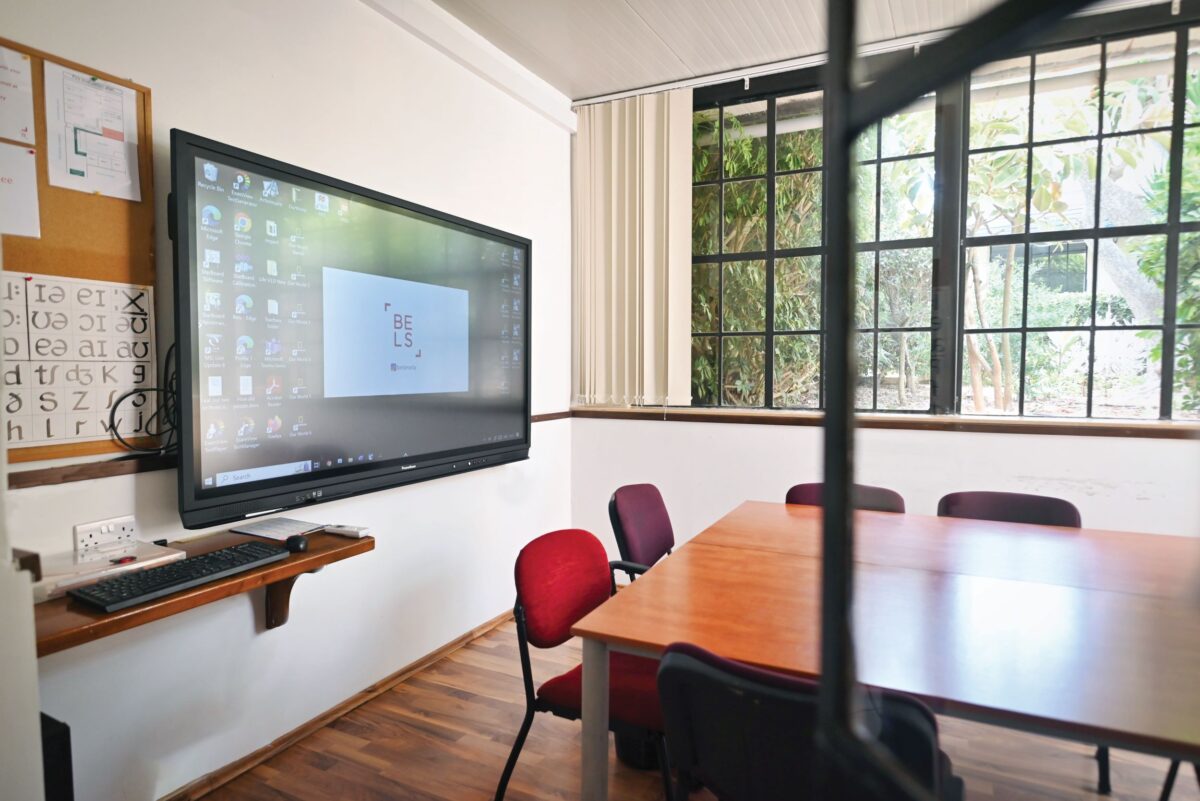
“People are at the heart of the customer experience, and if staff cannot communicate in English, they cannot deliver the level of customer experience that will set the companies they work for apart from competitors in the field,” Rebecca maintains.
As the tourism shoulder season grows longer, businesses like hotels and restaurants increasingly need staff from April to November. This shift in the tourism industry has led to a greater focus on maintaining full operations year-round, making the Skills Pass vital for both employees seeking stable, year-round contracts outside of Malta’s peak tourist seasons and business owners looking to adapt to these changes.
BELS supports companies by first understanding their specific needs and desired outcomes before tailoring training programmes accordingly. After assessing employee skill levels through an online test, BELS offers customised training solutions which can be delivered in-company, at one of its schools, or online. Companies can also receive assistance with funding applications, though many choose to self-finance, recognising the value of continuous professional development. This training often serves as a team-building exercise, bringing together employees at all levels, from junior staff to CEOs.
Despite being a medium-sized player in a competitive industry, “BELS prides itself on offering value for money, not by being the cheapest but by providing exceptional client-centric service and quality education,” Rebecca remarks. The team’s dedication to continuous learning has been a key driver in BELS’s growth, evident in the innovative use of technology, such as interactive touchscreens replacing whiteboards and integrating virtual reality (VR) into their teaching methods. “I believe in the value of leveraging technology to increase the effectiveness of learner experience. The key takeaway from my DELTA experience all those years ago was that personalisation aids retention,” she explains. Furthermore, BELS’s rigorous service evaluation process “helps us fine-tune our offerings based on client feedback, ensuring that we meet the evolving needs of our students and corporate clients.”
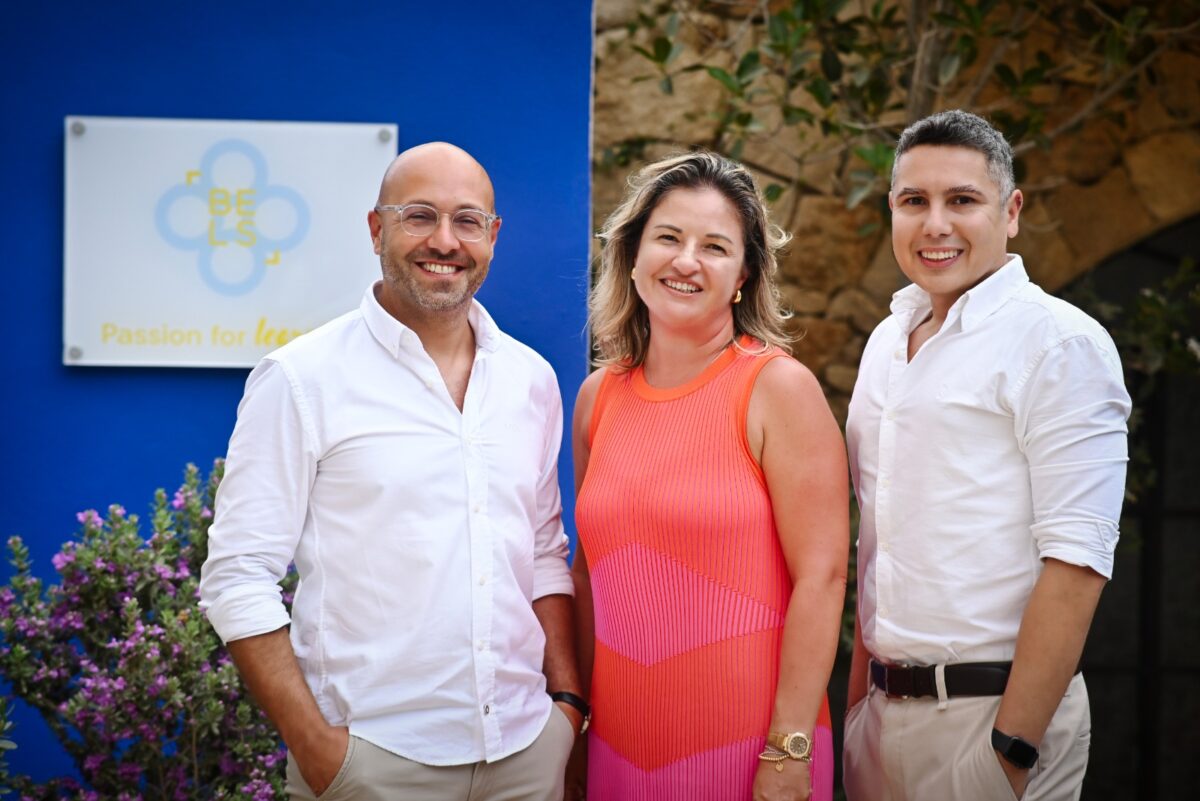
The CEO acknowledges she could not have achieved all this without a deep respect for the collective effort required to run a thriving business. She learned from her parents that true success is not just about financial gain but also about fostering a happy, supportive environment where every role is valued equally. Rebecca has truly invested in her team, recognising that her business’s success relies heavily on her staff. Not only is her team diverse, representing multiple nationalities, but they are also multi-skilled, bringing a wealth of experience from various sectors, including tourism, education, technology, leadership, and management. Rafael Carraca, BELS Gozo’s Director of Studies, speaks to the unique atmosphere Rebecca has fostered: “There is this family vibe here; it is unique. I’ve never seen anything like this. I don’t even feel like I’m going to work. I’m excited to come here. If there is a problem to face, I want to come here to tackle it.”
This belief in the transformative power of learning is central to BELS’s ethos and has been key to building a strong, sustainable school that attracts both dedicated employees and loyal students.
“We are all drinking the cool aid,” Rebecca laughs. Her leadership style is grounded in humility and practicality. As a working mother, Rebecca values time and is known for her direct, honest approach: “Waffle is not something that I do,” she says – a quality that serves her well as the chairperson of FELTOM (the Federation of English Language Teaching Organisations Malta), where she lobbies to maintain industry standards.
She also sits on the ELT Council and was recently appointed to the MTA Board. Despite the peer recognition, Rebecca is aware she is not a pioneer. “I wasn’t around in the ‘70s when ELT started in Malta, and I am very respectful of the people who came before me, but I take the humility I was taught and what I have learnt, and then I apply it to my business to make it different and successful.”
International accreditation is a cornerstone of BELS’s commitment to quality, enhancing the school’s reputation with foreign partners and clients. In addition to being one of 34 locally licensed ELT centres, BELS is proud to be among the 14 FELTOM-accredited schools in Malta. As Rebecca underlines, “tuition is at the heart of what we offer.” This dedication to excellence was recently validated by accreditation from EAQUALS, the global gold standard for language centres, earned after a rigorous four-day assessment and inspection. “These certifications are not just for show,” she insists. Rather, they represent BELS’s commitment to maintaining high standards in every aspect of business, from tuition to consolidating and upping the accommodation offering.
“As we look to the future, we are not going to rest on our laurels. We took a decision to go big or go home. The demand for English language education is evolving, and so is our approach. We are committed to pushing the boundaries of service and innovation,” Rebecca affirms. While staying true to its roots as an owner-run, homegrown school that values its clients, employees, and the broader community, BELS’s goal is to continue delivering high-quality education that meets the needs of both local and international clients, reinforcing its position as a leader in the industry.
This feature was first carried on Business Now 2024 magazine, the sister brand to BusinessNow.mt, both owned and managed by Content House
Spearheading economic diversification: Malta Enterprise Chairman William Wait outlines his vision
‘Looking ahead, our focus is on ensuring that Malta remains competitive in the global market’
Building wealth for tomorrow
BOV's Alex Bezzina highlights the flexibility and benefits of private pension plans, addressing the growing need for retirement solutions
Translating data into knowledge with Andaria Financial Services
CEO Nirav Patel on how Andaria helps companies to leverage data-driven opportunities through embedded finance


